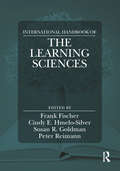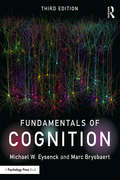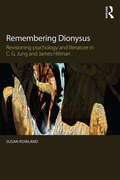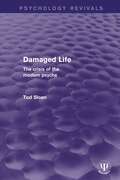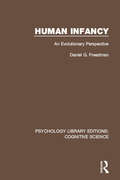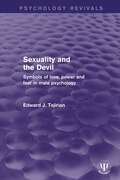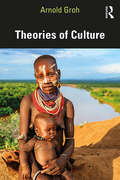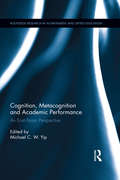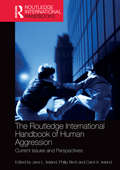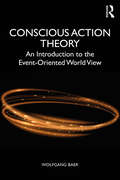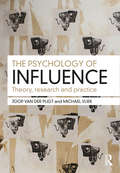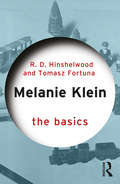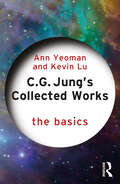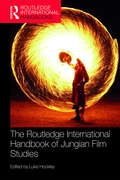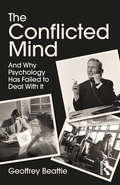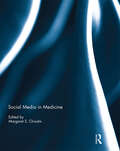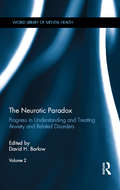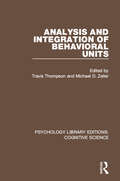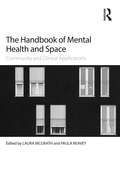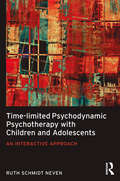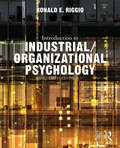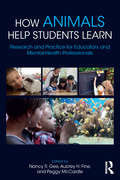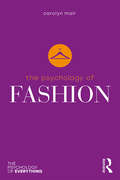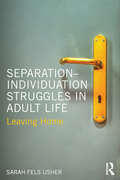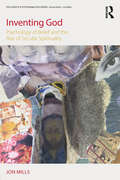- Table View
- List View
International Handbook of the Learning Sciences
by Frank Fischer Cindy E. Hmelo-Silver Susan R. Goldman Peter ReimannThe International Handbook of the Learning Sciences is a comprehensive collection of international perspectives on this interdisciplinary field. In more than 50 chapters, leading experts synthesize past, current, and emerging theoretical and empirical directions for learning sciences research. The three sections of the handbook capture, respectively: foundational contributions from multiple disciplines and the ways in which the learning sciences has fashioned these into its own brand of use-oriented theory, design, and evidence; learning sciences approaches to designing, researching, and evaluating learning broadly construed; and the methodological diversity of learning sciences research, assessment, and analytic approaches. This pioneering collection is the definitive volume of international learning sciences scholarship and an essential text for scholars in this area.
Fundamentals of Cognition
by Michael W. Eysenck Marc BrysbaertIs it possible to learn something without being aware of it?How does emotion influence the way we think?How can we improve our memory? Fundamentals of Cognition, third edition, provides a basic, reader-friendly introduction to the key cognitive processes we use to interact successfully with the world around us. Our abilities in attention, perception, learning, memory, language, problem solving, thinking, and reasoning are all vitally important in enabling us to cope with everyday life. Understanding these processes through the study of cognitive psychology is essential for understanding human behaviour. This edition has been thoroughly updated and revised with an emphasis on making it even more accessible to introductory-level students. Bringing on board Professor Marc Brysbaert, a world-leading researcher in the psychology of language, as co-author, this new edition includes: developed and extended research activities and "In the Real World" case studies to make it easy for students to engage with the material; new real-world topics such as discussions of attention-deficit/hyperactivity disorder, the reading problems of individuals with dyslexia, why magic tricks work, and why we cannot remember the Apple logo accurately; a supporting companion website containing multiple choice questions, flashcards, sample essay answers, instructor resources, and more. The book provides a perfect balance between traditional approaches to cognition and cutting-edge cognitive neuroscience and cognitive neuropsychology. Covering all the key topics within cognition, this comprehensive overview is essential reading for all students of cognitive psychology and related areas such as clinical psychology.
Remembering Dionysus: Revisioning psychology and literature in C.G. Jung and James Hillman
by Susan RowlandDionysus, god of dismemberment and sponsor of the lost or abandoned feminine, originates both Jungian psychology and literature in Remembering Dionysus. Characterized by spontaneity, fluid boundaries, sexuality, embodiment, wild nature, ecstasy and chaos, Dionysus is invoked in the writing of C. G. Jung and James Hillman as the dual necessity to adopt and dismiss literature for their archetypal vision of the psyche or soul. Susan Rowland describes an emerging paradigm for the twenty-first century enacting the myth of a god torn apart to be re-membered, and remembered as reborn in a great renewal of life. Rowland demonstrates how persons, forms of knowing and even eras that dismiss Dionysus are torn apart, and explores how Jung was Dionysian in providing his most dismembered text, The Red Book. Remembering Dionysus pursues the rough god into the Sublime in the destruction of meaning in Jung and Jacques Lacan, to a re-membering of sublime feminine creativity that offers zoe, or rebirth participating in an archetype of instinctual life. This god demands to be honoured inside our knowing and being, just as he (re)joins us to wild nature. This revealing book will be invigorating reading for Jungian analysts, psychotherapists, arts therapists and counsellors, as well as academics and students of analytical psychology, depth psychology, Jungian and post-Jungian studies, literary studies and ecological humanities.
Damaged Life: The Crisis of the Modern Psyche (Psychology Revivals)
by Tod SloanWhat are the psychological problems caused by modernization? How can we minimize its negative effects? Modernization has brought many material benefits to us, yet we are constantly told how unhappy we are: crime, divorce, suicide, depression and anxiety are rampant. How can this contradiction be reconciled? Damaged Life, originally published in 1996, presents a powerful and progressive analysis of modernity’s impact on the psyche. Tod Sloan develops an integrated theory of the self in society by combining perspectives on personality development and socio-historical processes to explore our complex response to modernization. He discusses the implications of postmodern theory for psychology and proposes concrete responses to address the issue of mass emotional suffering. His book should be read not only by those working within psychology and related disciplines such as sociology and social policy, but also by anyone seeking enlightenment about the predicament of the self in contemporary society.
Human Infancy: An Evolutionary Perspective (Psychology Library Editions: Cognitive Science #11)
by Daniel G. FreedmanOriginally published in 1974, this volume is primarily devoted to what is known about human infancy from an ethological, evolutionary viewpoint. Included are discussions of pan-specific traits, presumably shared by all infants; individual genetic variations on these behaviours (as judged by twin-studies); sex differences, presumably shared by infants of all ethnic groups; and genetically based ethnic differences. However, the author favours neither biological determinism nor cultural determinism, and does not consider ‘interactionism’ to be a viable solution. Instead, a monistic position is taken, stressing the inseparability of the innate and the acquired, of genetics and environment, and of biology and culture. The heredity-environment issue is tackled head-on throughout the volume. The interaction between the two (an implied dualism) is described as a statistical abstraction from measured populations, while the position here is that heredity and environment are not separable in any single organism. In the same vein, the author argues that on logical grounds everything one does, every ‘cultural’ act, has within it some biological component.
Sexuality and the Devil: Symbols of Love, Power and Fear in Male Psychology (Psychology Revivals)
by Edward J. TejirianAt the time of publication our understanding of sexuality relied heavily on biology, and also on morality, as was particularly evident when homosexuality and bisexuality were discussed. In this title, originally published in 1990, the author presents a compelling case for viewing the sexual dimension of life through an understanding of its symbols. The potent figure of the devil serves as his avenue of approach. In the first part of the book, the author presents a detailed case history of a young man who began psychoanalytic therapy with him because of a terrifying conviction that he could be possessed by the devil. In the course of therapy it emerged that the devil had entered into his consciousness as a vehicle to express a complex of homosexual wishes and fears that were deeply troubling to a man whose life history had been entirely heterosexual. The author argues that the assumptions about male psychology that came to pervade psychoanalytic theory after Freud’s death could not account for the nature of this young man’s conflicts or for the outcome of the analysis. In the second part of the book, the author cites historical and anthropological data to demonstrate that the depth and breadth of male psychology extend beyond the limits of what was considered normal by the neoconservative theorists who revised Freud’s theories to exclude his ideas about bisexuality. Rejecting the reduction of sexuality to biology, the author asserts that sexuality can be properly regarded as symbolic, in the same way that meaningful works of art and rituals are symbolic. The power of sexual images and actions comes from their ability to combine important meaning with intensely felt emotion. Finally, the author examines the way in which culture affects sexuality through its control of consciousness and its influence on what kinds of sexual symbols may be utilized and what kinds of meanings they may express.
Theories of Culture
by Arnold GrohThis authoritative but concise guide describes the most significant cultural theories from the 19th to the 21st century and their originators, as well as the links between them and their mutual influences. This guide explores ideas around what culture is, when and why cultures change over time and whether there are any rules or principles behind culture-related phenomena and processes. For those seeking to answer questions on culture, familiarity with these topics is essential. From refugee movements caused by wars, to the ongoing demographical changes in regions of the world like sub-Saharan Africa or the Indian subcontinent, understanding the underlying mechanisms of culture-related processes has become an immediate and essential task. Covering everything from the processes of cultural change to counterculture and destabilisation, the book explains different ideas in a clear and objective fashion and includes approaches that have been unduly neglected but which have high explanatory value regarding culture and its phenomena. Providing readers with an up-to-date idea of what culture is, and how our understanding of it has been established over the past century, this text is the perfect companion for advanced undergraduates, postgraduates and researchers.
Cognition, Metacognition and Academic Performance: An East Asian Perspective (Routledge Research in Achievement and Gifted Education)
by Michael C. W. YipLearning strategies and academic performance have been extensively investigated but relatively few studies were conducted in East Asia. This volume presents a reflection on the current status of metacognition and academic performance in the East Asian region. It serves to provide a more complete picture of the global study of how students‘ learning and studying strategies affect their acdemic performance. This book will be of interest to researchers and educators in the area of education, education psychology, cross-cultural studies, education policy, curriculum and instruction and regional studies.
The Routledge International Handbook of Human Aggression: Current Issues and Perspectives (Routledge International Handbooks)
by Jane L. Ireland, Philip Birch and Carol A. IrelandDrawing upon international expertise, and including some of the most well-known academics and practitioners in the field, The Routledge International Handbook of Human Aggression is the first reference work to fully capture how our understanding of aggression has been refined and reconceptualised in recent years. Divided into five sections, the handbook covers some of the most interesting and timely topics within human aggression research, with analysis of both indirect and direct forms of aggression, and including chapters on sexual aggression, workplace bullying, animal abuse, gang violence and female aggression. It recognises that, in many cases, aggression is an adaptive choice rather than a moral choice. Providing practitioners and academics with an up-to-date resource that covers broad areas of interest and application, the book will be essential reading for students, researchers and practitioners associated with a range of social science disciplines, including psychology, criminology, social work and sociology, particularly those with an interest in developmental, organisational, forensic and criminal justice allied disciplines.
Conscious Action Theory: An Introduction to the Event-Oriented World View
by Wolfgang BaerConscious Action Theory provides a logical unification between the spirit and the material, by identifying reality as an event that processes personal experiences into explanatory memories, from which personal experiences are regenerated in a never-ending cycle of activity. Baer explores the idea that our personal feelings are undeniable facts that have been systematically excluded from the basic sciences, thereby leaving us with a schizophrenic division between objective materialism and spiritual idealism. Cognitive Action Theory (CAT) achieves this unification by recognizing that the observer’s existence is the foundational premise underlying all scientific inquiry. It develops as an event-oriented physical theory in which the first-person observer is central. By analyzing the methods through which we human observers gain knowledge and create the belief systems within which our experiences are explained, we discover a fundamental truth: all systems are observers and exhibit some form of internal awareness. Events, not the objects appearing in them, are the fundamental building blocks of reality. The book is comprised of three parts: the first addresses the paradigm shift from an object to an event-oriented world view, the second develops the foundations of action physics for an event-oriented world view and the third provides examples of how these new ideas can be applied to move our knowledge up the next evolutionary step of human development. This book will benefit anyone questioning their role in the universe, especially those in interdisciplinary fields of philosophy, psychology, neuroscience and medicine, who seek understanding of quantum theory as the physics of conscious systems that know the world.
The Psychology of Influence: Theory, research and practice
by Joop Van Pligt Michael VliekWhether it’s our choice of a new car or what we think about our neighbours, our opinions and attitudes are a way of negotiating the world around us. The Psychology of Influence explores how these preferences and behaviours are influenced and affected by the messages we receive in daily life. From consumer choices to political, lifestyle and financial decisions, the book examines how and why we may be influenced by a range of sources, from written text and television to social media and interpersonal communication. In a field that has fascinated scholars since Plato, the book addresses the key questions across cognitive, social and emotional domains: When do arguments become persuasive? What influence do role models have? What role do simple rules of thumb, social norms or emotions play? Which behaviours are difficult to influence, and why? Covering topics from attraction, prejudice and discrimination to reward, punishment and unconscious bias, The Psychology of Influence will be invaluable reading for students and researchers across a range of areas within applied and social psychology, as well as those in political science, communications, marketing and business and management.
Melanie Klein: The Basics (The Basics)
by Robert D. Hinshelwood Tomasz FortunaMelanie Klein: The Basics provides an accessible and concise introduction to the life and work of Melanie Klein, whose discoveries advanced those of Freud and other analysts, deepening our insight into the unconscious domain of psychology in human beings. Klein began her work by developing a method of psychoanalysis for children, who suffer from anxiety and other, often unrecognised, conflicts, which enabled understanding of those crucial early steps in the development of human mind and identity. Although she initiated one strand of clinical and theoretical developments, many of her discoveries are well-regarded by other schools of psychoanalysis. The book contains four parts, as well as further reading suggestions and a helpful glossary of key terms. Part I introduces Melanie Klein in the context of her life, her early interest in psychoanalysis and her first discoveries; Part II takes up the development of her technique of child analysis and discusses the ways in which her insights and conclusions in this area influenced the technique of adult analysis and the more general understanding of the human mind; Part III focuses on further scientific and clinical developments in psychoanalytic technique – especially those referring to the understanding and treatment of serious emotional disturbance, e.g. psychosis or affective disorders; Part IV focuses on contemporary developments in Kleinian and post-Kleinian psychoanalysis, considering clinical, cultural, and socio-political applications. Each chapter poses a basic question at the outset, provides an account of how Klein faced this question and worked with it to develop her ideas, and ends by posing a follow up question to be addressed in the subsequent chapter. This book will greatly appeal to readers from any field seeking a clear and concise introduction to Melanie Klein. It will also interest researchers and professionals working within the field of psychoanalysis seeking a succinct overview of Melanie Klein’s contribution.
C.G. Jung's Collected Works: The Basics (The Basics)
by Ann Yeoman Kevin LuThis new introduction to Jung’s Collected Works—written in lively and accessible style—provides a comprehensive guide to key concepts in analytical (Jungian) psychology while charting the creative evolution of Jung’s thought through his own words.Invaluable to both beginners and those more experienced with Jungian theory, this book provides tables listing key readings for further study of the Collected Works, clear explication of fundamental principles, chapter summaries, prompts for deepening a critical engagement with Jung’s texts, a glossary of key terms, and suggestions for further reading.This text will be an invaluable introduction for those coming to the Collected Works for the first time as well as a useful reference for readers familiar with the collection.
The Routledge International Handbook of Jungian Film Studies (Routledge International Handbooks)
by Luke HockleyThe Routledge International Handbook of Jungian Film Studies weaves together the various strands of Jungian film theory, revealing a coherent theoretical position underpinning this exciting recent area of research, while also exploring and suggesting new directions for further study. The book maps the current state of debates within Jungian orientated film studies and sets them within a more expansive academic landscape. Taken as a whole, the collection shows how different Jungian approaches can inform and interact with a broad range of disciplines, including literature, digital media studies, clinical debates and concerns. The book also explores the life of film outside cinema - what is sometimes termed ‘post-cinema’ - offering a series of articles exploring Jungian approaches to cinema and social media, computer games, mobile screens, and on-line communities. The Routledge International Handbook of Jungian Film Studies represents an essential resource for students and researchers interested in Jungian approaches to film. It will also appeal to those interested in film theory more widely, and in the application of Jung’s ideas to contemporary and popular culture.
The Conflicted Mind: And Why Psychology Has Failed to Deal With It
by Geoffrey BeattieOne of the greatest paradoxes of human behavior is our tendency to say one thing and do something completely different. We think of ourselves as positive and fair-minded, caring about other people and our environment, yet our behavior lets us down time and time again. Part of the reason for this is that we may have two separate 'selves': two separate and dissociated mental systems - one conscious, reflective and rational, and one whose motives and instincts are rooted in the unconscious and whose operation resists reflection, no matter how hard we try. In all kinds of areas of our life – love, politics, race, smoking, survival - one system seems to make very different sorts of judgements to the other, and is subject to distinct, hidden biases. The Conflicted Mind explores how and why this system operates as it does and how we may use that knowledge to promote positive behaviour change. However, the ‘conflicted mind’ is a broader concept than just the clash between potential (hypothetical) systems of thinking, because in one form or another it forms the very pillars on which the edifice of social psychology is built. This unique book therefore examines key social psychology theories and research in a new light, including Festinger’s concept of cognitive dissonance, Milgram’s obedience experiments, Bateson’s description of conflict in communications, and Bartlett’s explorations of the constructive nature of human memory. Geoffrey Beattie argues that although these classic studies were sometimes great and imaginative beginnings, they were also full of flaws, which social psychology must remedy if it is to make the kind of impact it aspires to. In doing so, he offers a ground breaking perspective on why we think and act in the way we do, to see what lessons can be learned for the discipline of social psychology going forward. Written in the author’s distinct open and engaging style, The Conflicted Mind is a fascinating resource for researchers, specialists, and students in the field, as well as the general reader.
Social Media in Medicine
by Margaret S. ChisolmThe use of social media around the world has exploded in recent years, with the number of monthly active users of Facebook and Twitter estimated to be one billion and one quarter billion, respectively. Physicians and medical trainees are among the users of social media, raising questions of how Facebook, Twitter, and other novel online tools may best be harnessed to further medical research, patient care, and educational pursuits. Because social media enables an immediate exchange of information and ideas around shared areas of interest, it has fostered communication and collaboration among a global network of researchers, clinicians, patients, and learners. Social Media in Medicine reviews a range of topics, from research ethics to medical education, and includes personal reflections by clinicians and learners that represent diverse opinions about the role of social media in medicine. The book is relevant to all healthcare stakeholders and will hopefully encourage ideas and questions to generate more research into the use of social media in medical research, patient care, and education. This book was originally published as a special issue of the International Review of Psychiatry.
The Neurotic Paradox, Vol 2: Progress in Understanding and Treating Anxiety and Related Disorders, Volume 2 (World Library of Mental Health)
by David H. BarlowThis collection of David H. Barlow‘s key papers are a testimony to the collaborative research that he engendered and directed with associates who now stand with him at the forefront of experimental psychopathology research and in the treatment of anxiety and related disorders. His research on the nature of anxiety and mood disorders resulted in new conceptualizations of etiology and classification. This research led new treatments for anxiety and related emotional disorders, most notably a new transdiagnostic psychological approach that has been positively evaluated and widely accepted. Clinical psychology will benefit from this collection of papers with connecting commentary.
Analysis and Integration of Behavioral Units (Psychology Library Editions: Cognitive Science #25)
by TRAVIS THOMPSON AND MICHAEL D. ZEILEROriginally published in 1986, this volume was the result of a conference in honor of the 65th birthday of the late Kenneth MacCorquodale, an exceptionally eloquent spokesman for the field of experimental analysis of behaviour at the time. The present volume grew directly out of the issues raised by MacCorquodale and Meehl in their "Excursis: The Response Concept" paper and which MacCorquodale posed so often when he taught. It is a fitting tribute to the man on his 65th birthday that a group of scholars whom he held in the highest regard convened in one place to think out loud about two of the thorniest problems facing behavioral science, namely, the nature of the units of analysis of the subject matter and the mechanisms responsible for their integration.
The Handbook of Mental Health and Space: Community and Clinical Applications
by Paula Reavey Laura McGrathThe Handbook of Mental Health and Space brings together the psychosocial work on experiences of space and mental distress, making explicit the links between theoretical work and clinical and community practice. The change from an institutional to community care model of mental health services can be seen as a fundamental spatial change in the lives of service users, and the book aims to to stimulate discussion about mental healthcare spaces and their design.With contributions from those involved in theorizing space, those drawing on their own experiences of distress and space, as well as practitioners working on the ground,the book will be of interest to mental health practitioners and academics.
Time-limited Psychodynamic Psychotherapy with Children and Adolescents: An interactive approach
by Ruth Schmidt NevenAt a time when there is increasing concern about the escalation of child and adolescent mental health problems, Time-limited Psychodynamic Psychotherapy with Children and Adolescents provides an innovative contextual model that engages the child or young person and their parents. The core of the model is the recognition of the dynamic capacity for growth in the child and how this, in itself, creates opportunities for effective treatment over a relatively short period of time. Based on evidence that the most enduring therapeutic outcomes involve a shift in the parents’ relational understanding of themselves, as well as a change in the child, the book uses case examples to show how this model can be applied in everyday therapeutic practice. Time-limited Psychodynamic Psychotherapy with Children and Adolescents is aimed at practitioners in the field of child, adolescent, parent and family psychotherapy. It will interest psychologists, child psychotherapists, doctors, psychiatrists, social workers and mental health workers.
Introduction to Industrial/Organizational Psychology (Seventh Edition)
by Ronald E. Riggio<p>Introduction to Industrial/Organizational Psychology provides an accessible approach to psychological theory and its applications to the world of work. Using both classic theories and research along with the latest developments and innovations, this student-centered text shows practical applications of theoretical concepts using examples from work situations that students may be familiar with—such as service industries, internet companies, and startups—in addition to traditional office and factory work settings. Each chapter includes key terms and review questions, and the text features special sections highlighting applications of I/O psychology theories, psychological approaches to everyday work situations, and current areas of research and practice. <p>The seventh edition is thoroughly updated to include the latest research on each key topic. It also includes expanded coverage of international issues, job engagement, and emerging topics in the field, such as workplace bullying, virtual teams and organizations, agile organization structures, and web-based training and assessment. The book will be of interest to undergraduate students in introductory I/O psychology or psychology of work behavior courses. <p>For additional resources, please consult the Companion Website at www.routledge.com/cw/riggio, where instructors will find an expanded instructor’s manual, test bank, and lecture slides, and students will find chapter summaries and learning objectives.</p>
How Animals Help Students Learn: Research and Practice for Educators and Mental-Health Professionals
by Nancy R. Gee Aubrey H. Fine Peggy McCardleHow Animals Help Students Learn summarizes what we know about the impact of animals in education and synthesizes the thinking of prominent leaders in research and practice. It’s a much-needed resource for mental-health and education professionals interested in incorporating animals in school-based environments, one that evaluates the efficacy of existing programs and helps move the field toward evidence-based practice. Experts from around the world provide concrete examples of how animals have been successfully incorporated into classroom settings to achieve the highest level of benefit while also ensuring the health and welfare of the students and animals involved.
The Psychology of Fashion (The Psychology of Everything)
by Carolyn MairWhat do our clothes say about us? How do the clothes we wear affect our moods and emotions? How does the fashion industry encourage us to aspire to look in a certain way? The Psychology of Fashion offers an insightful introduction to the exciting and dynamic world of fashion in relation to human behaviour, from how clothing can affect our cognitive processes to the way retail environments manipulate consumer behaviour. The book explores how fashion design can impact healthy body image, how psychology can inform a more sustainable perspective on the production and disposal of clothing, and why we develop certain shopping behaviours. With fashion imagery ever present in the streets, press and media, The Psychology of Fashion shows how fashion and psychology can make a positive difference to our lives.
Separation-Individuation Struggles in Adult Life: Leaving Home
by Sarah Fels UsherSeparation-Individuation Struggles in Adult life: Leaving Home focuses on the developmental task of separating from parents and siblings for individuals and couples who have not been able to resolve these issues earlier in life. Sarah Fels Usher extends Mahler’s theory, and includes the writing of Loewald and Modell, among others, stressing the right of adult patients to a separate life. She describes the predicament of Oedipal victors (or victims), their introjected feelings of responsibility for their parents, and their resultant inability to be truly individuated adults. Difficulties separating from siblings are also given analytic attention. Usher’s experience treating couples adds a new and powerful dimension to her theory. She is optimistic throughout about the therapist’s ability to help adult patients resolve the rapprochement sub-phase in a satisfying manner. An additional, crucial question is raised when the author asks if the therapist can allow the patient to terminate treatment. Has the therapist achieved separation from their own parents—or, indeed, from their analyst? Exploring the plight of patients of the unseparated analyst, Usher describes how these generational factors rear their unfortunate heads when it is time to end therapy. Listening to patients from the perspective of separation-individuation is not new; what is new is Usher’s emphasis on how these particular issues are often masked by significant achievement in adult professional life. Separation-Individuation Struggles in Adult Life: Leaving Home will be of great importance for psychoanalysts and psychoanalytic psychotherapists working with adults, as well as for clinical postgraduate students.
Inventing God: Psychology of Belief and the Rise of Secular Spirituality (Philosophy and Psychoanalysis)
by Jon MillsIn this controversial book, philosopher and psychoanalyst Jon Mills argues that God does not exist; and more provocatively, that God cannot exist as anything but an idea. Put concisely, God is a psychological creation signifying ultimate ideality. Mills argues that the idea or conception of God is the manifestation of humanity’s denial and response to natural deprivation; a self-relation to an internalized idealized object, the idealization of imagined value. After demonstrating the lack of any empirical evidence and the logical impossibility of God, Mills explains the psychological motivations underlying humanity’s need to invent a supreme being. In a highly nuanced analysis of unconscious processes informing the psychology of belief and institutionalized social ideology, he concludes that belief in God is the failure to accept our impending death and mourn natural absence for the delusion of divine presence. As an alternative to theistic faith, he offers a secular spirituality that emphasizes the quality of lived experience, the primacy of feeling and value inquiry, ethical self-consciousness, aesthetic and ecological sensibility, and authentic relationality toward self, other, and world as the pursuit of a beautiful soul in search of the numinous. Inventing God will be of interest to academics, scholars, lay audiences and students of religious studies, the humanities, philosophy, and psychoanalysis, among other disciplines. It will also appeal to psychotherapists, psychoanalysts and mental health professionals focusing on the integration of humanities and psychoanalysis.
